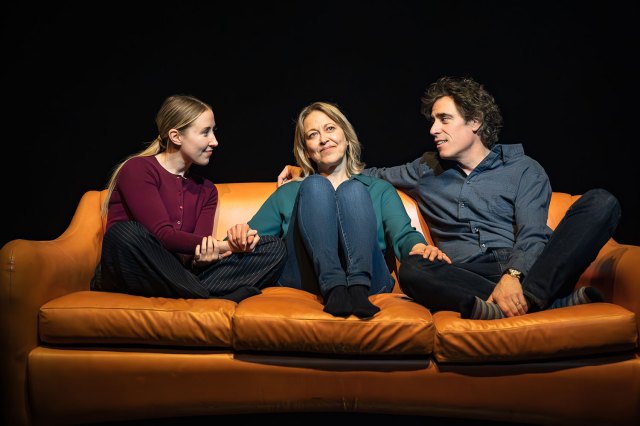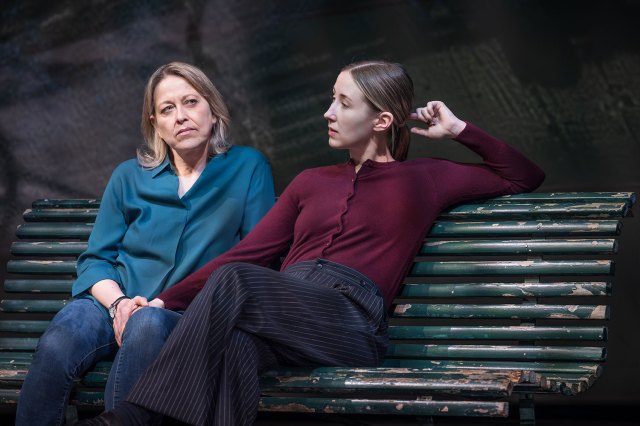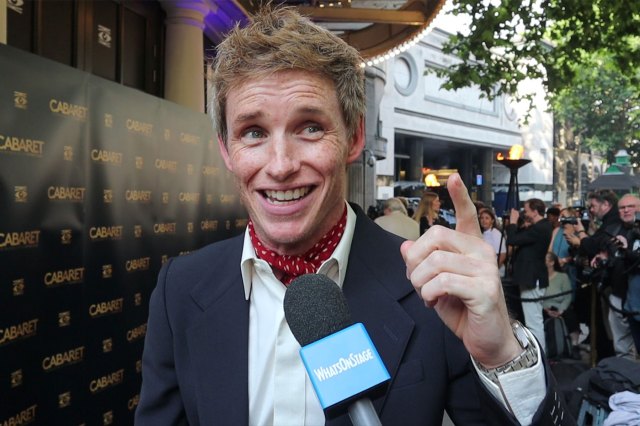Unicorn West End review – this throuple play is an elusive creature
Mike Bartlett‘s new play, starring Nicola Walker, Stephen Mangan and Erin Doherty, runs at the Garrick Theatre until 26 April

Mike Bartlett is incapable of writing a boring story. From the prescience of King Charles III which imagined a future monarchy in Shakespearean blank verse, to the gripping twists and turns of the television series Doctor Foster, the precision and imaginative heft of his dramas make them essential viewing.
Stephen Mangan, Nicola Walker and Erin Doherty are a dream cast, actors who combine personal charisma with the ability to vanish into whatever part they are playing. All of which makes Unicorn an odd experience. It’s never dull and often devastating, but somehow it fails to land with the weight for which it is striving.
It begins when Polly (Walker), a poet, meets Kate (Doherty) at a conference, and is instantly attracted to the student writer. She feels old – “It’s not comparing your age with other people that’s worrying… it’s when you start wondering if you’re older than objects” – but equally she is conscious that when you “put any group of people together there’s thousands of sex thoughts flying around like some virus.” She wants to put some of those imaginings into action.
Trouble is she has been married for 25 years to ENT specialist Nick (Mangan); she loves him, and they love their children, but the spark has gone out of their relationship. What, she wonders, if they both had a relationship with Kate? Kate, spellbound and serious about living her life differently, is up for it. “This is like having sex with Sylvia Plath and Ted Hughes.”
The first half of the drama explores the complications and compromises that this throuple might involve, touching quickly and cleverly on any number of modern malaise: the way, for example, that Love Island “has no love in it”; the crisis in modern masculinity; the sense of generations being failed by their elders.

Miriam Buether’s design places the quickly passing scenes under an arch of bright light with a screen backing like a scrunched-up lampshade; each encounter takes place on a sofa, or a bench, or a bedroom, with Natasha Chivers’ lighting casting eerie shapes and shadows. Different versions of “Daisy, Daisy” punctuate the action, its simplistic romantic assertions contrasting with the knotty dilemmas of the love triangle unfolding.
With the help of James Macdonald’s unobtrusive but taut direction, the cast excel. There are few people better than Mangan at making the words “in theory” feel like an essay in probability; as he wriggles and writhes in the midst of an unfamiliar situation, he brilliantly suggests a genuine confusion that masks something darker and less savoury. Walker is equally powerful, often funny, always honest. Her character is the ultimate truth-sayer, but she’s good at revealing the cost of that – showing the doubts beneath her desire to bring about change.
But it’s Doherty who steals the show. Kate is both childlike and wise, wanting to remake the world but also a pragmatist, and Doherty lends her both conviction and a sense of desperation, a willingness to try that always puts her at risk of getting hurt. Her face is sometimes a mask, sometime a picture of all her hopes. In one speech, she explains why she hasn’t invited Nick to her party. “I haven’t invited any straight men. They bring so much resentment, beer, shouting, aggression, shyness.” It’s that word shyness that brings you up short, and Doherty finds it unerringly; it’s a lovely, subtle, darting performance.
It is also, like the entire play, often very, very funny. Bartlett’s writing hits its targets with unerring precision, but in the second half, as the action darkens and develops in unexpected ways, his themes seem more diffuse. The scenes get shorter, events land out of the blue. There’s a hint of apocalypse. It’s like being pitched from Noël Coward’s truthful social realism, into Caryl Churchill’s bleak dystopias.
There’s still humour there, but it increasingly feels like a different play. This may be entirely intentional, but it makes Unicorn itself an elusive creature.
















